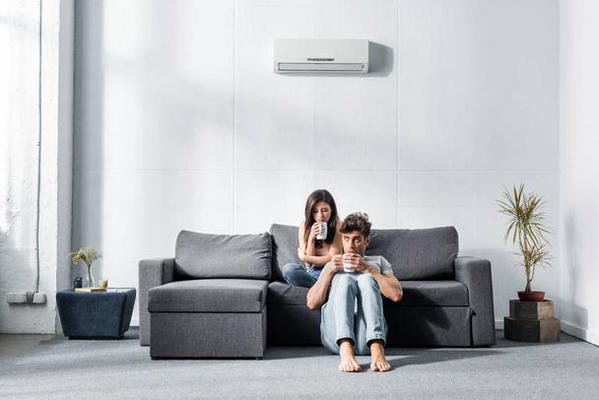There are a lot of discussions about the harm of air conditioners. Someone considers them the cause of colds, and someone thinks that they are a useful air purifier. But what is in reality? Let’s try to understand.
Widespread myths
The air conditioner cools the air, makes ventilation, and also maintains the temperature in the room at the same level. It draws in the air, processes it, cleans it, cools it, and takes it back into the room.
For allergy sufferers, the air conditioner is a lifesaver because its cleaning filters absorb dust, pollen, and animal hair.
Common myths about the harm of the device:
Reduces immunity: air conditioning makes the air so clean that the human body gets used to it and can no longer fight germs. No, this is not true. To weaken immunity, the air should be not just clean, but sterile. The air conditioner can not make it so, it only brings it to the optimal purity, which will not hurt, but on the contrary, allows you to breathe easier.
Leads to colds: this myth is also not justified. People who use air conditioners do get sick often, but only because they do not use them correctly. The temperature of the street and the room should have a difference of no more than 8 degrees. And if we get from the street to the room with a sharp temperature difference, such a sharp chill can indeed cause a cold. Also, if you are near the device for a long time, and you are constantly being blown around by streams of cold air, then you can easily get sick here. So, to prevent this, it is worth using your air conditioner correctly.
Freon in the air conditioner is harmful to your health. The fears are groundless. Freon is harmful in big quantities, for example, in case of its leakage. But let us remember that it is not only in conditioners but also in refrigerators. But for some reason, they do not speak about the harm of refrigerators so often, as about the harm of conditioners. And to avoid leakage, you should not install the device independently – it is better to entrust this business to specialists.
It makes the air dry: many people think that in the room, where the conditioner is working, the air becomes very dry, and this fact not in the best way influences the skin and airways and also leads to rhinitis and dry eyes. There is some truth in it, as the device does cut the air humidity, but it does it insignificantly, not causing any harm. And those who live in regions with high humidity will only benefit from this feature.
Minimizing Risks
There is no harmless technique, but if you use it correctly, you can significantly reduce the risks.
To avoid colds, do not set the temperature too high in winter, keep it around 20-23 degrees. And in summer set it to at least 18 degrees. Try to keep the temperature difference between indoors and outdoors no greater than 8 degrees. For example, if it is 30 degrees on the street, do not keep the temperature in the house below 22 degrees, it may provoke a cold and runny nose.
It is not recommended to install an air conditioner over your bed or desk and keep it on all the time. Do not forget to turn off the device periodically (each 3-5 hours) for an hour.
Ventilate the room regularly, and additionally saturate the air with moisture. A humidifier or a wet towel left near the appliance will help.
If your conditioner has additional functions, it will not only purify the air but also saturate it with useful ions, which will give you strength and vitality. Everything is good in moderation, so do not overuse your air conditioner and take care of your health!
To avoid problems, contact the professionals at SDAC Heating & Air Conditioning, and we’ll help you install an air conditioner in your home.
Contact us
